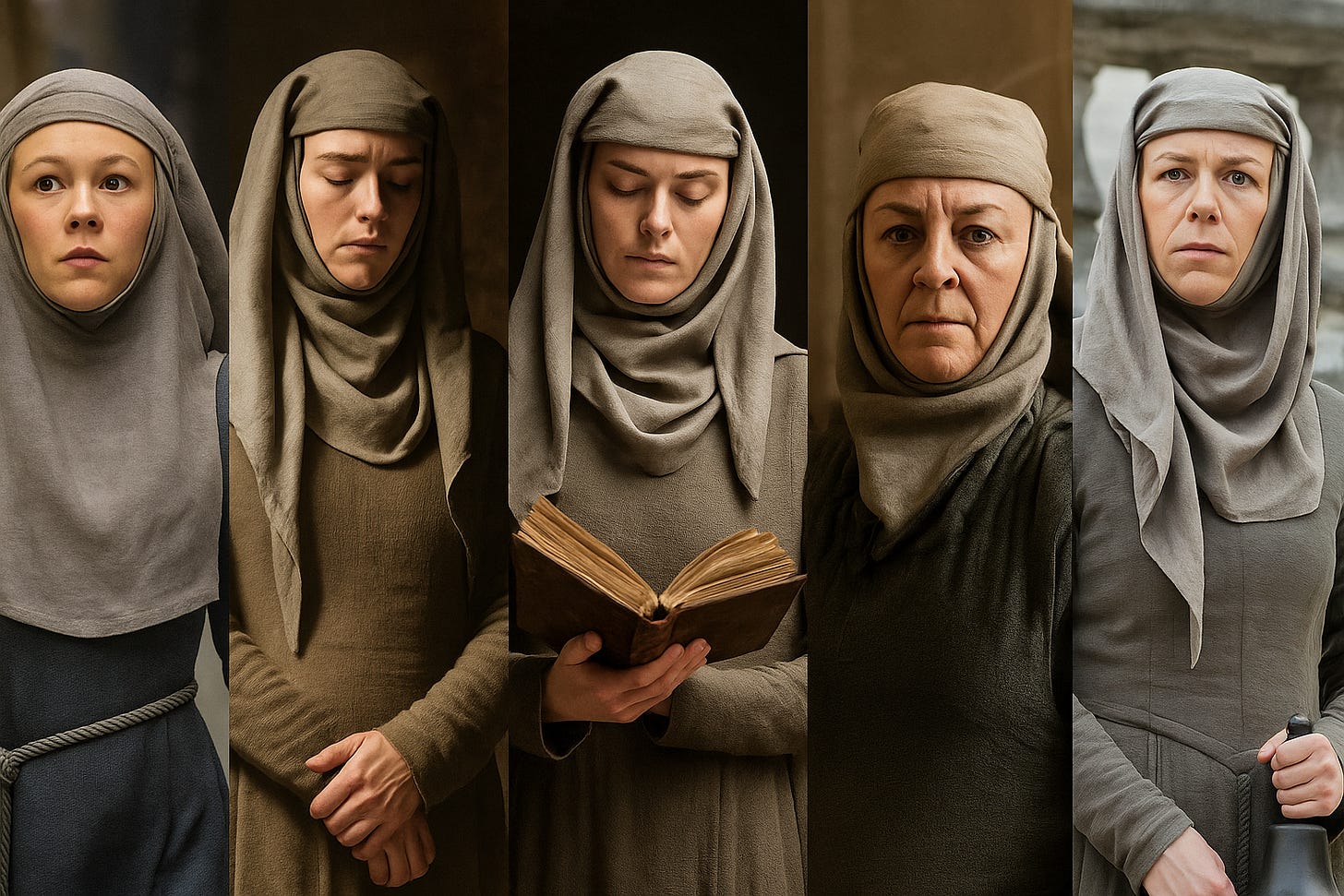Thrones of Her Own: The Women Who Changed Fantasy Forever
In the Name of the Mother: How Religion Keeps Women in Line
Or: Why the gods always seem to favour obedience with good posture
It’s funny, really. The gods—no matter the realm—always seem to want the same thing from women:
Purity. Sacrifice. Obedience. Silence.
Whether it’s a Septa muttering prayers in the Red Keep or a girl being told to pray to the Maiden for protection she’ll never get, the message is the same:
Be good. Be small. Be quiet.
The point is not piety. It’s control.
Because the Faith isn’t about holiness—it’s about hierarchy.
And religion, like politics, always has a body count.
In Westeros, as in our own histories, that body is often a woman’s.
Maiden. Mother. Crone.
If you don’t fit, you can always be a Stranger.
Or—a Monster.
Think Melisandre. Cersei. Arya.
Each deserves her own chapter, really—even more so than the Mother-archetype, Catelyn Stark.
Let’s begin with the keepers of the Faith: the Septas.
What their very relevant example shows us even today is this:
You don’t need to be wicked to harm someone.
You don’t need to be a villain to obey a monstrous rule.
You just need a framework that tells you you’re good—and someone to suffer for your virtue.
Religion—true religion, the kind people live and die by—doesn’t recruit monsters.
It recruits the kind, the loyal, the earnest.
It finds the people who want to do right, and it gives them a script.
And then it whispers:
“Here’s how you help.”
Even if that means shaming a child.
Even if that means burning a girl.
Even if that means ringing a bell while a queen walks naked through the streets.
Take Septa Mordane—sweet, stern, and painfully blind.
She didn’t think she was setting Sansa up for a political bloodbath.
She thought she was preparing a girl for her destiny.
She taught Sansa to pray, to curtsy, to smile when spoken to.
She thought she was preparing her for marriage and motherhood.
What she was really doing was marching her toward slaughter, wrapped in lace.
But Sansa—slowly, silently—found her own way.
She turned the path they laid for her into one no one ever saw coming.
Arya, of course, never even stayed on the path.
She slipped the leash before it ever tightened and carved her own story—as no one.
But that’s another chapter.
Septa Unella didn’t believe she was a torturer.
She believed she was a vessel of divine justice.
Stone-faced and bell-ringing, an icon of public shame.
She tortured a queen and believed she was serving the gods.
She whispered prayer while people rotted.
She never doubted.
Because she didn’t need to.
The Seven had spoken.
Maybe the gods really do have seven faces.
But none of them look like freedom.
➡️ Next Chapter



